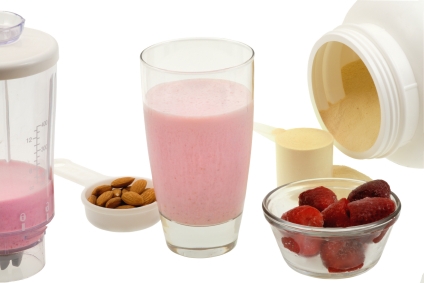Losing weight requires a caloric deficit. You can choose to create that deficit with a combination of caloric restriction below your daily energy requirement as well as raising your daily calorie burn with a combination of cardio and weight training.
These are the basics and they don’t change, and it doesn’t really need to get any more complex than this.
However you will find many claims from the diet and fitness media that suggest it is much more complex than this, and one of the most persistent claims is about protein and it’s benefits for weight loss.
Eating a high protein diet is claimed to be a benefit for weight loss for any one of the following reasons (and probably a combination of them):
1. Increased thermic effect of protein foods
2. Higher degree of satiety per gram
3. A change in fat burning and fat storing hormones to favor fat burning
4. Nutrient repartitioning (ie: more of the calories from protein will go to muscle instead of fat)
These claims sound pretty good and some of them do have scientific evidence that suggest there might be some fire under the smoke.
For example, the thermic effect of protein can be measured and has been shown to be higher than fat or carbs. This means that if you eat the same number of calories from protein instead of carbs, it will cause your body to burn a few more calories digesting and assimilating it. This effect is small, and might only make a noticeable difference for bodybuilders and fitness competitors who are dieting down to single digit bodyfat levels.
Another claim we often see relating to protein is the effect on satiety. Many studies and anecdotal reports suggest that protein itself will satisfy hunger better than the same amount of carbohydrate. This could help you stick to a diet and keep you from overeating at other points throughout the day.
It’s also known that dietary protein will increase amino acid pools, increase nitrogen balance, and contribute to intramuscular amino acids. This is all part of the ‘nutrient partitioning’ story. Essentially the protein you eat is much more likely to end up contributing to amino acids in muscle and repairing tissues all around your body before it will ever contribute to fat.
It would appear that there are many benefits of increasing your protein content when trying to diet down and keep your lean muscle mass up.
In the “How Much Protein for Weight Loss” UNCENSORED audio program released today, we’ll review some recent research that looked at the effect of high or low protein on weight loss. We’ll discuss the merits and limitations of this research shed whatever light we can on the results and what they mean to you in your efforts to build muscle and burn fat at the same time.
John
Login and Download Podcast Here
For more information as well as how to get access to Adonis UNCENSORED, click the link below:
Adonis UNCENSORED Premium Podcast
